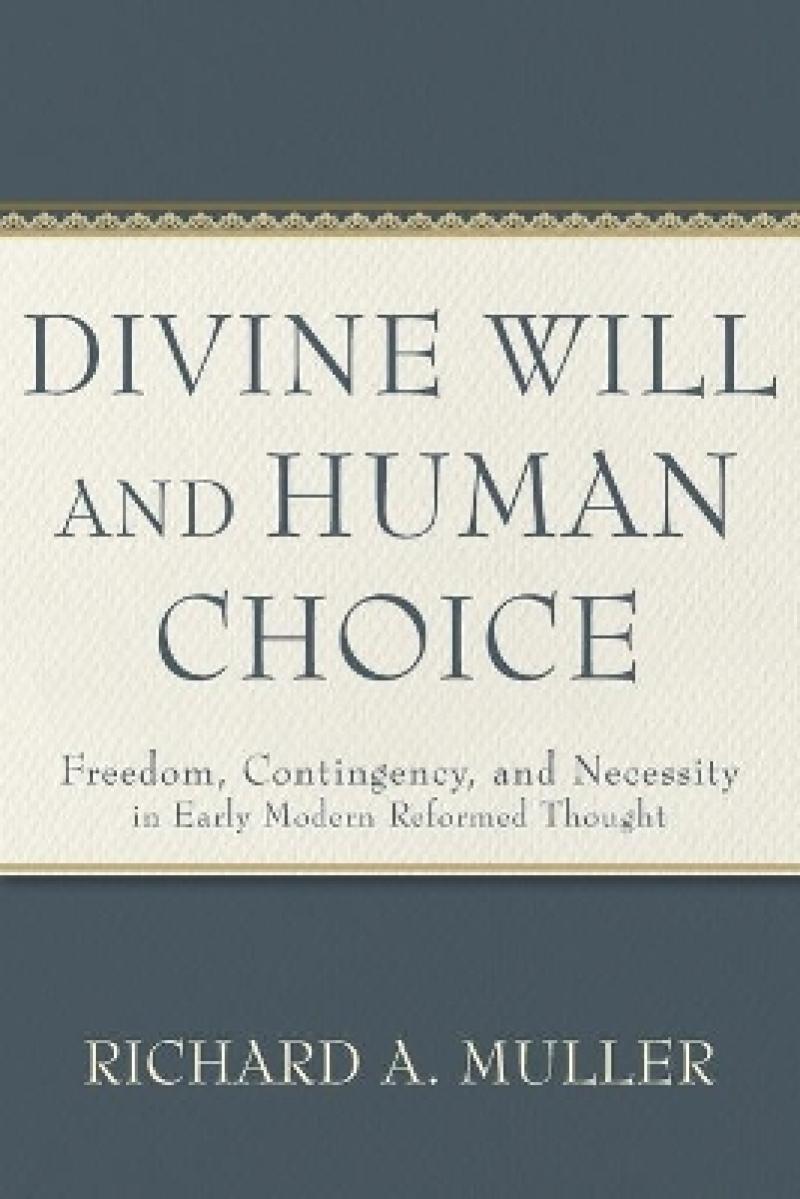This fresh study from an internationally respected scholar of the Reformation and post-Reformation eras shows how the Reformers and their successors analyzed and reconciled the concepts of divine sovereignty and human freedom. Richard Muller argues that traditional Reformed theology supported a robust theory of an omnipotent divine will and human free choice and drew on a tradition of Western theological and philosophical discussion. The book provides historical perspective on a topic of current interest and debate and offers a corrective to recent discussions.
Les mer
An internationally-respected scholar of the Reformation and post-Reformation eras shows how the Reformers and their successors analyzed and reconciled the concepts of divine sovereignty and human freedom, offering a corrective to recent discussions.
Les mer
ContentsPart I: Freedom and Necessity in Reformed Thought: The Contemporary Debate1. Introduction: The Present State of the Question2. Reformed Thought and Synchronic Contingency: Logical and Historical IssuesPart II: Philosophical and Theological Backgrounds: Aristotle, Aquinas, and Duns Scotus3. Aristotle and Aquinas on Necessity and Contingency4. Duns Scotus and Late Medieval Perspectives on FreedomPart III: Early Modern Reformed Perspectives: Contingency, Necessity, and Freedom in the Real Order of Being5. Necessity, Contingency, and Freedom: Reformed Understandings6. Scholastic Approaches to Necessity, Contingency, and Freedom: Early Modern Reformed Perspectives7. Divine Power, Possibility, and Actuality8. Divine Concurrence and Contingency9. Conclusions
Les mer
"Few scholars possess Richard Muller's knowledge of early modern theology or his ability to analyze with precision Reformed teaching on the central question of divine and human causality. The breadth and depth of Muller's command of Reformed thought displayed in this book are unrivaled, ensuring that Divine Will and Human Choice will quickly establish itself as a must-read for all students of Protestant theology."--Bruce Gordon, Yale Divinity School"There is not a more contested area in the study of Reformed orthodoxy than issues of divine foreknowledge, human free will, and the nature of contingency. The matter is highly complicated and involves multiple questions of interpretation and reception, including how Aristotle was appropriated by medieval schoolmen, such as Aquinas and Scotus, and how the medievals were then used by the Reformed. Those new to the field can easily become overwhelmed by the sheer volume of primary literature and the confusing subtlety of the arguments. In this context, Divine Will and Human Choice is a welcome addition to the literature because it offers both the neophyte and the scholar a superb account of the various questions involved and provides judicious critiques of the contemporary debate."--Carl R. Trueman, Westminster Theological Seminary"Once again Richard Muller has provided us with an extremely careful and insightful analysis on the development of Reformed theology. He has approached the topics of freedom and necessity in Reformed thought from his extremely knowledgeable background of ancient philosophy and medieval theology. In so doing he has provided a trajectory that demonstrates that Reformed thought cannot be understood in isolation from the Western tradition as a whole. This is a superb study, and there is much to learn from this volume."--Susan Schreiner, University of Chicago Divinity School"Muller's masterful treatment of God's will and human free choice is exemplary. It clearly and accurately presents the positions held by medieval and early modern Reformed theologians rather than spinning them in favor of a preferred position or conclusion. Muller has command of both the historical and contemporary philosophical categories and positions involved in theological debates, and he fruitfully relates historic positions to current philosophical and theological debates without anachronistically treating our theological ancestors as our philosophical contemporaries."--John Cooper, Calvin Theological Seminary"Muller continues to surprise readers with fascinating news from historical sources, and this rich volume is the latest fruit of his ongoing research. His careful analysis in Divine Will and Human Choice shows that this theme remains highly relevant for church and society today. Here Muller reevaluates positions, challenges readers, and serves theology with another fine work."--Herman Selderhuis, Theological University Apeldoorn; director of Refo500
Les mer
Produktdetaljer
ISBN
9781540965981
Publisert
2022-03-29
Utgiver
Vendor
Baker Academic, Div of Baker Publishing Group
Vekt
554 gr
Høyde
230 mm
Bredde
158 mm
Dybde
21 mm
Aldersnivå
P, 06
Språk
Product language
Engelsk
Format
Product format
Heftet
Antall sider
336
Forfatter
